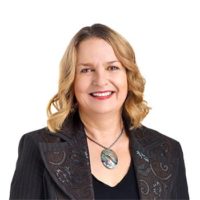1. Shortage of Dutch Teachers Makes Spending COVID Recovery Funds Difficult
Shortages of teachers in the Netherlands are making it difficult for schools to spend the €8.5 billion (US$10 billion) in funding provided to help them accelerate learning in the wake of the pandemic. The primary school council PO-Raad reported that more than 40 percent of schools have not been able to find teachers to fill roles they planned to staff with the government recovery funds, which must be spent in two years. Chair of the council Freddy Weima said the shortages are greatest in the major cities in the Netherlands but that other regions across the country are experiencing shortages as well. School heads are concerned about special needs teachers leaving their roles to take on new positions, making special needs an area of particular shortages. Leaders are also pointing to the need to close a long-standing wage gap between primary and secondary teachers, which has left the shortages concentrated at the primary level. For more, see Dutch News.

2. New Zealand Faces a “Slippage in Expectations” in Early Math Education

The Education Review Office, the New Zealand government’s external education evaluation agency, released a new report detailing the decline of primary students’ math skills in comparison to peers in other high-performing jurisdictions. The report asserts that New Zealand’s National Curriculum is not being taught fully by teachers due to insufficient teacher preparation and a lack of rigorous, nationwide standards. The government has already started addressing concerns about a decline in math achievement. In 2019, the government required all teachers to pass a literacy and numeracy test to earn their certification. This year, the Associate Education Minister, Jan Tinetti, is working with stakeholders to develop a strategy to raise mathematics achievement. This process includes an independent review of what math knowledge and skills students need; the findings of this review will be incorporated into the National Curriculum. Read more about the Education Review Office’s report here.
3. Scotland Will Pay for Music Lessons for All Students
Scottish school councils will receive an extra £7 million (US$9.6 million) to fund free music classes for students in the coming year. Although some school councils offer individual instrument lessons for free, others have introduced fees due to budget shortfalls. Enrollment has declined as charges were added. The Government has agreed to waive music lesson fees for all parents for one year and to provide funds for other extracurricular classes and experiences like home economics and trips to theatres. Education Secretary Shirley-Anne Somerville said young people’s opportunities “should never be limited by a child’s ability to pay.” For more, see BBC.

4. Short Supply but High Future Demand for Child Care Workers in Australia

The Australian government’s National Skills Commission released their latest Skills Priority List which reports shortages of early childhood teachers in all territories and a shortage of child care workers in every territory except Queensland. The list indicates a strong future demand for child care workers and vocational education teachers and moderate future demand for early childhood, primary, secondary, and special needs teachers as well as teachers’ aides. The analysis will be used to guide government policy initiatives including funding for apprenticeships and other training programs. Learn more at The Sector.
